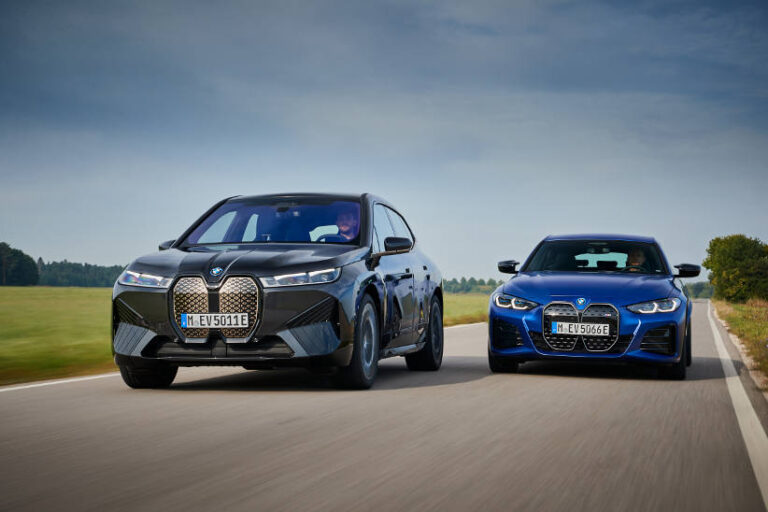BMW is committed to electric vehicles and sales growth has followed with impressive figures achieved locally and internally so far in 2022. Around the world, sales of electric BMW and MINI models more than doubled compared to the same period last year.
In Australia, sales growth was linked to the launch of the fully electric iX3, iX and i4. The iX3 recorded 237 registrations between January and June, while the iX saw 155 registrations in the same period.
The i4 Gran Coupé – whose line-up includes the first emissions free BMW M car, the M50 – also saw triple figure registrations with 133 vehicles finding new customers in the first half of 2022.
In complement, registrations of BMW plug-in hybrids (PHEV) – models that combine a highly efficient petrol engine with an electric motor and battery – recorded a 75 per cent uplift in registrations for the first half of 2022.
A highlight for the PHEV line-up was a 57 per cent volume increase for the X5 xDrive45e on the corresponding period in 2021 (108 units versus 69), while there were 119 registrations of the X3 xDrive30e – which launched late last year – in the period between January and June.
For brand MINI, the Electric Hatch – a model that combines a highly responsive fully electric powertrain and brand hallmark go-kart dynamics – continued its stellar run with 102 per cent growth (168 units versus 83).
There was also encouraging growth for the MINI Countryman Hybrid model, with a nine per cent uplift in registrations for the PHEV model on the first half of last year (95 units versus 87).
BMW Australia is continuing to aggressively expand its product portfolio, with launch of the BMW i7 flagship sedan model later this year, and iX1 in 2023.
With addition of these models to its model line-up, BMW Group Australia will offer 12 electrified models to local customers, which is among the most of any automotive manufacturer in Australia.
These models also represent key and further steps towards the leading German luxury carmaker having more than two million fully electric vehicles on the roads by the end of 2025.
The next generation purely electric Neue Klasse line-up of models will make a significant contribution to BMW Group sales volumes from the middle of the decade onwards. The Neue Klasse has the potential to further accelerate the market penetration of electromobility so that 50 percent of the BMW Group’s global sales could be generated from fully electric vehicles before 2030.
MINI will have an all-electric product range by the early 2030s, while all future new models from BMW Motorrad in the field of urban mobility will also be fully electric such as the new BMW CE 04, which launched in Australia earlier this year.
The focus on electromobility expansion is in concert with the BMW Group’s dedication to sustainability and ambition to transition to a carbon neutral business by 2050.
It has clear C02 emissions reduction targets for 2030 that span across all business operations as per the following, with the figures relating to a comparison with 2019 levels:
- 20 per cent per vehicle in the supply chain
- 80 per cent per vehicle in production
- 50 per cent in the use phase
The BMW Group additionally plans to increase its use of secondary materials in vehicle production from the current level of 30 per cent to 50 per cent in the future.






